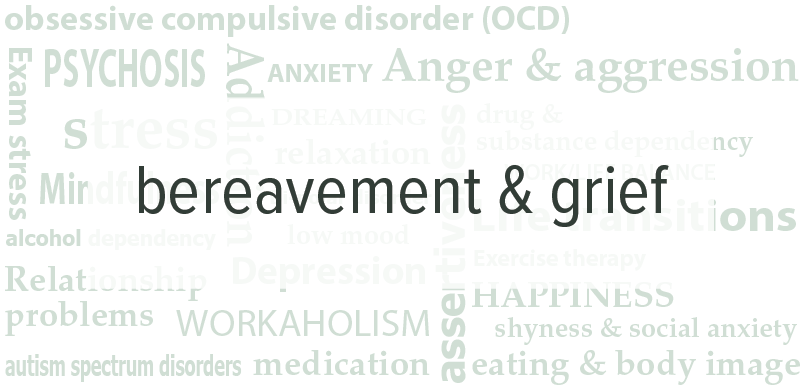Bereavement
Bereavement can affect people in different ways, there is no right or wrong way to feel. It is a distressing yet common experience that can involve many difficult emotions. The way we react can be influenced by many factors, including our age, cultural background or previous experiences with loss.The four stages of grief
It is generally accepted that there are four stages of grief. These are:Accepting the loss is real
When we lose someone close to us, initially it can be difficult to believe it has actually happened. You may feel like this even if the death was expected. Although distressing to accept, it can be important to come to terms with the reality of your loss.Experiencing the pain of grief
There are many painful emotions that come after the loss of a loved one. This can include feelings of numbness, guilt, anger, and overwhelming sadness. No person will experience this in the same way and there is not a set amount of time that these emotions can be expected to last. It is important to give yourself the time you need to process them.Adjusting to life without that person in it
Another emotion that is often experienced with bereavement is a strong sense of yearning. It is not uncommon for those who have experienced loss to want to find their loved one, even though this is not possible. This can cause disruptions to sleep, difficult dreams and can make them believe they see or hear their loved one in everyday life.Putting emotional energy into different areas of your life and trying to move on.
As time passes, the painful emotions that often come with bereavement will fade. Although it may not feel like it at the time, there will come a time where it will be possible to think about other things and begin to look to the futureOther symptoms experienced with a bereavement
- Psychological symptoms (or changes in cognitions) include: feeling agitated, irritated or angry; guilt; feelings of hopelessness.
- Behavioural symptoms include: increased aggression towards others; losing your temper quickly; confusion; finding it hard to concentrate on tasks; reduced interest in social activities; little interest in sex; and lack of motivation to take care of yourself by eating properly, keeping clean or exercising.
- Physiological symptoms include: changes in appetite (loss or gain) and thus rapid weight loss or gain; and difficulty sleeping.
Ways to take care of yourself following a bereavement
- Talk to other people about your loss, your memories, and your feelings. This may seem difficult at first but it is better than isolating yourself completely at this difficult time.
- Eat properly and try to rest even if you aren’t able to sleep.
- Keep a journal with your thoughts and feelings, it can help to validate and work through your grief.
- Give yourself time to grieve and let it out- bottling up emotions does not help. It is important in the grieving process to listen to your body and what it needs rather than fighting it.
- Seek extra support if you feel this is something you could benefit from.
Further information about bereavement and grief
Download our FREE booklet 'Understanding Grief'Useful websites
Cruse - Restoring hope
Bereavement Moodjuice Self-Help Guide
Feel free to contact us to ask about psychological therapies available at First Psychology that may help support you or someone you know who is struggling with bereavement.
Practitioners who work with Bereavement & Grief in Newcastle:





